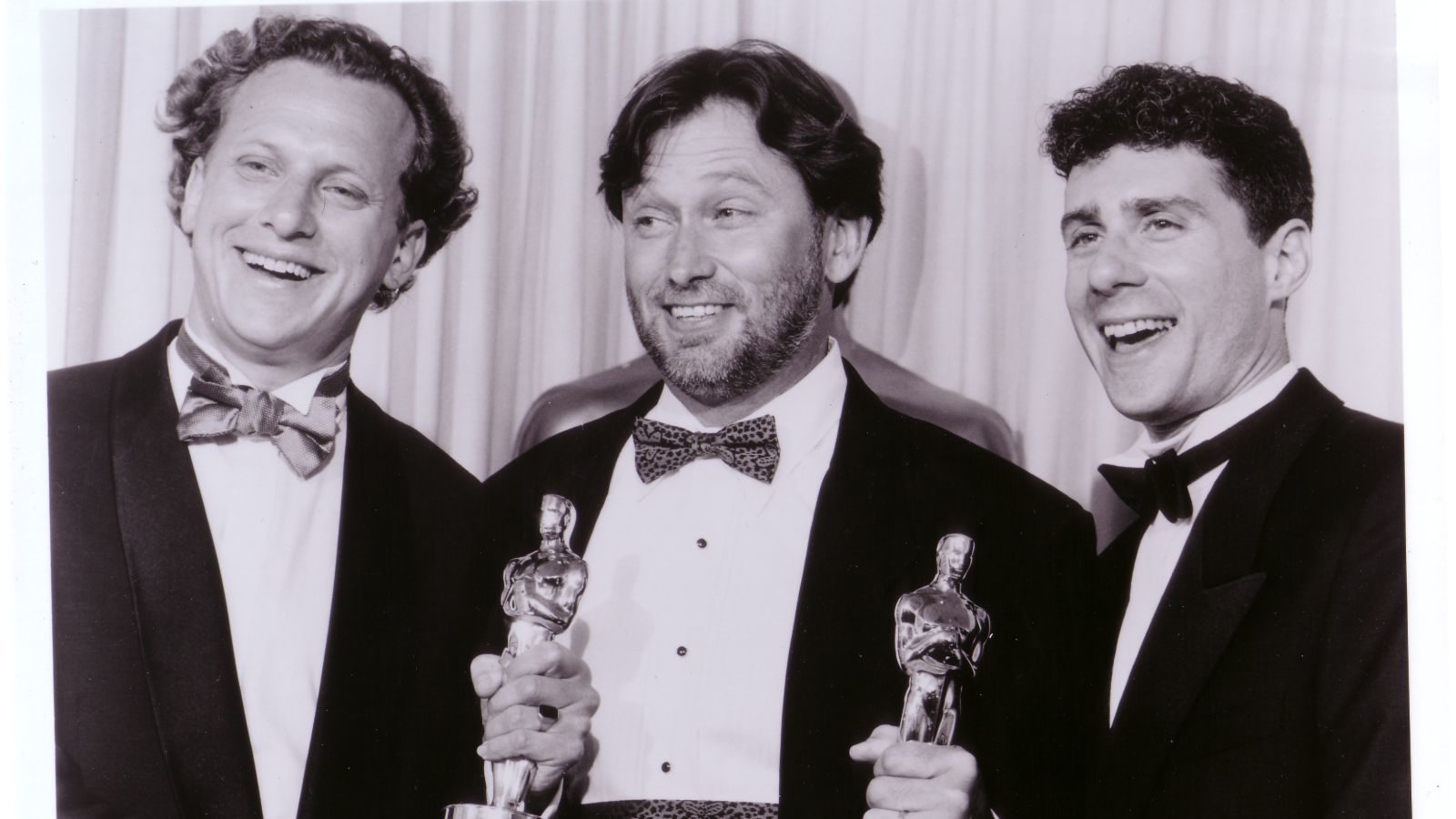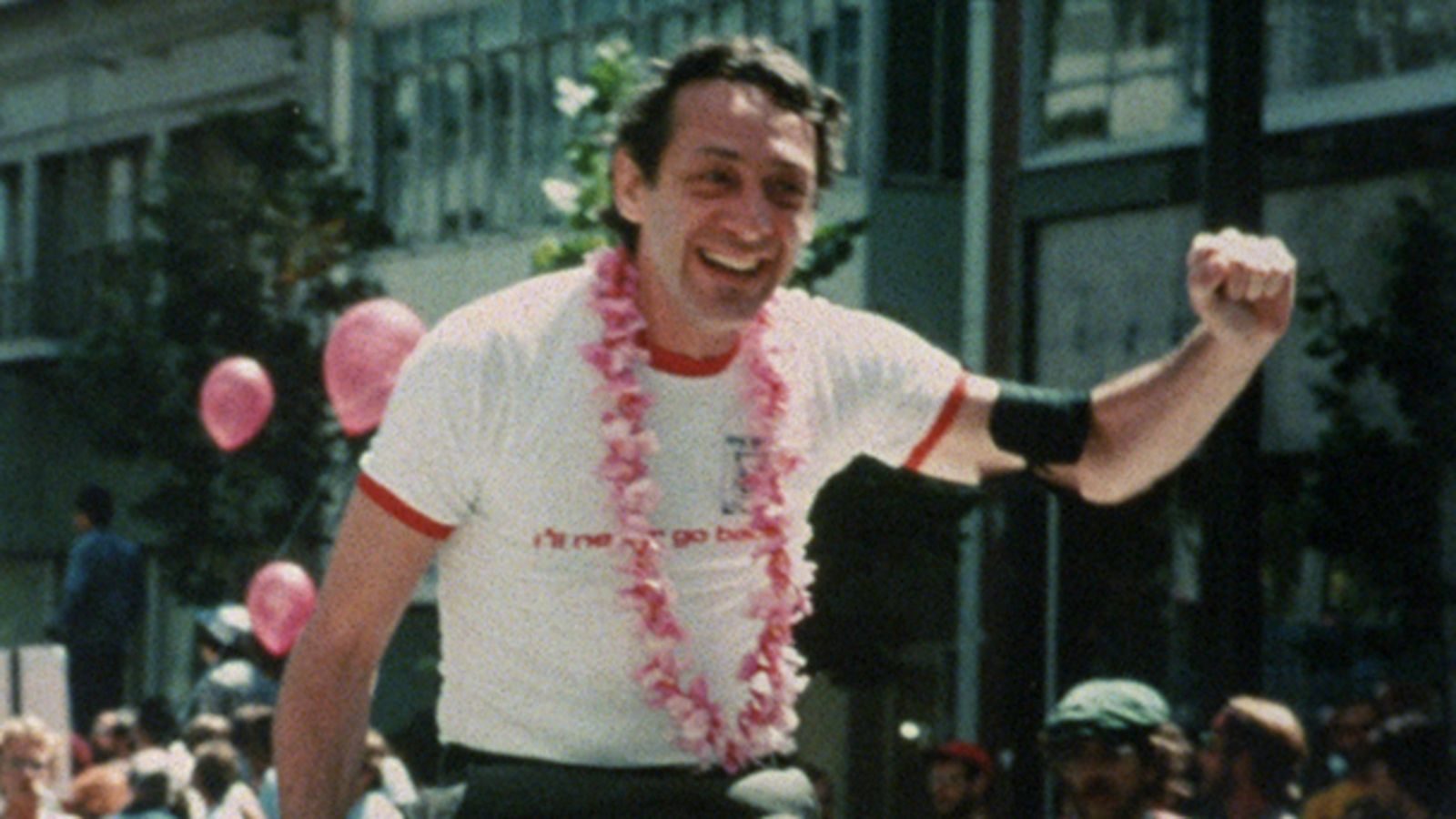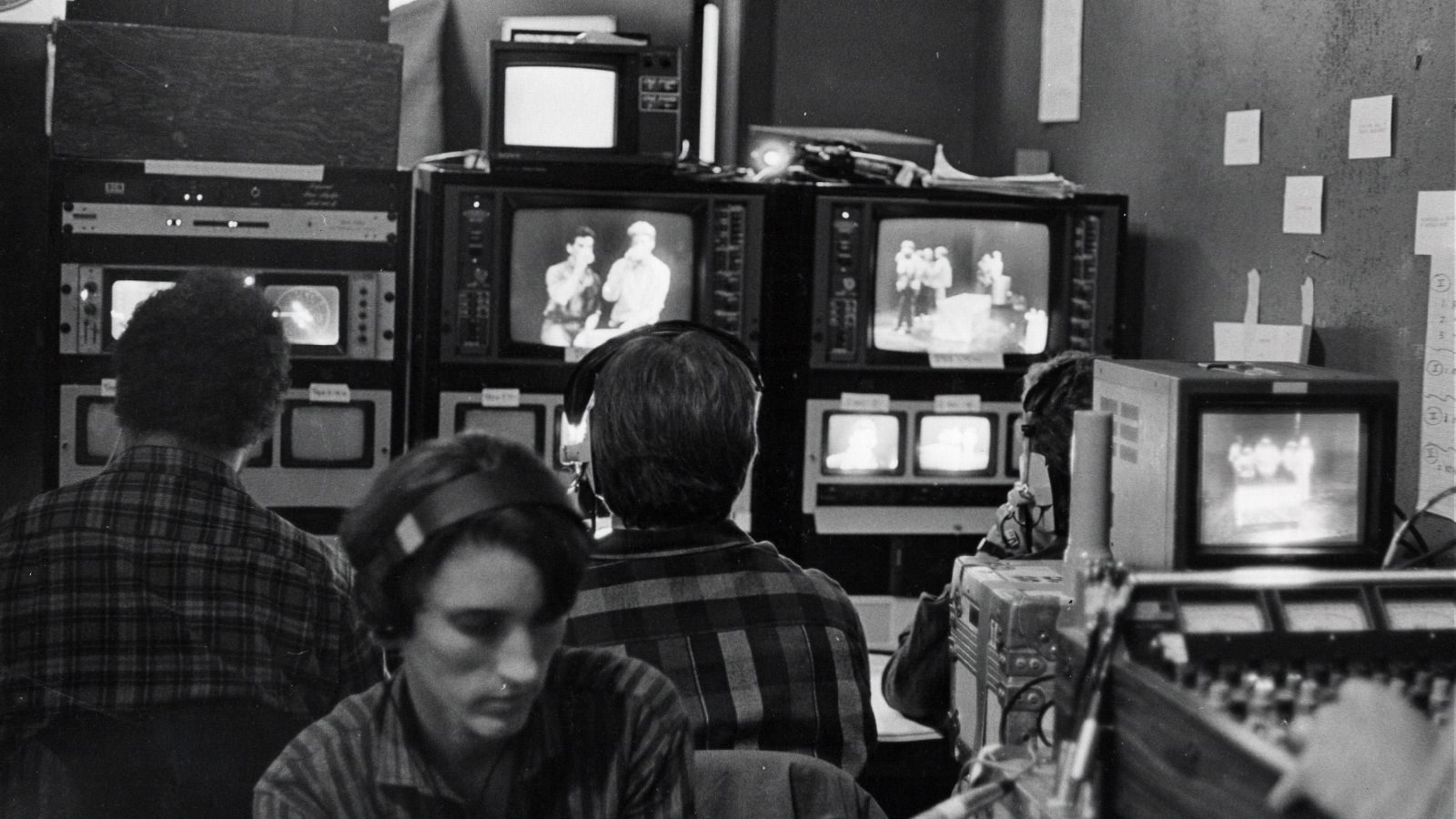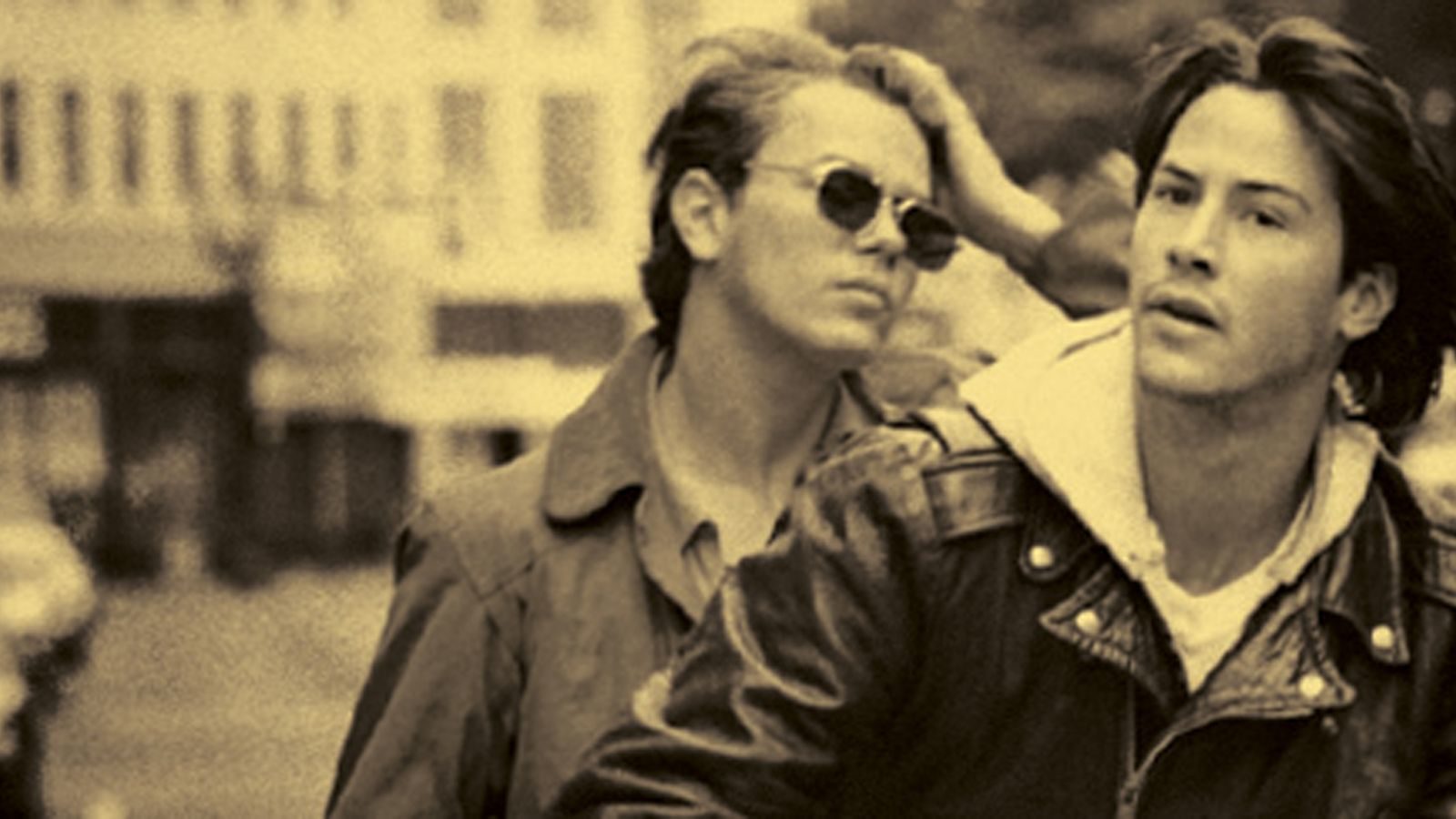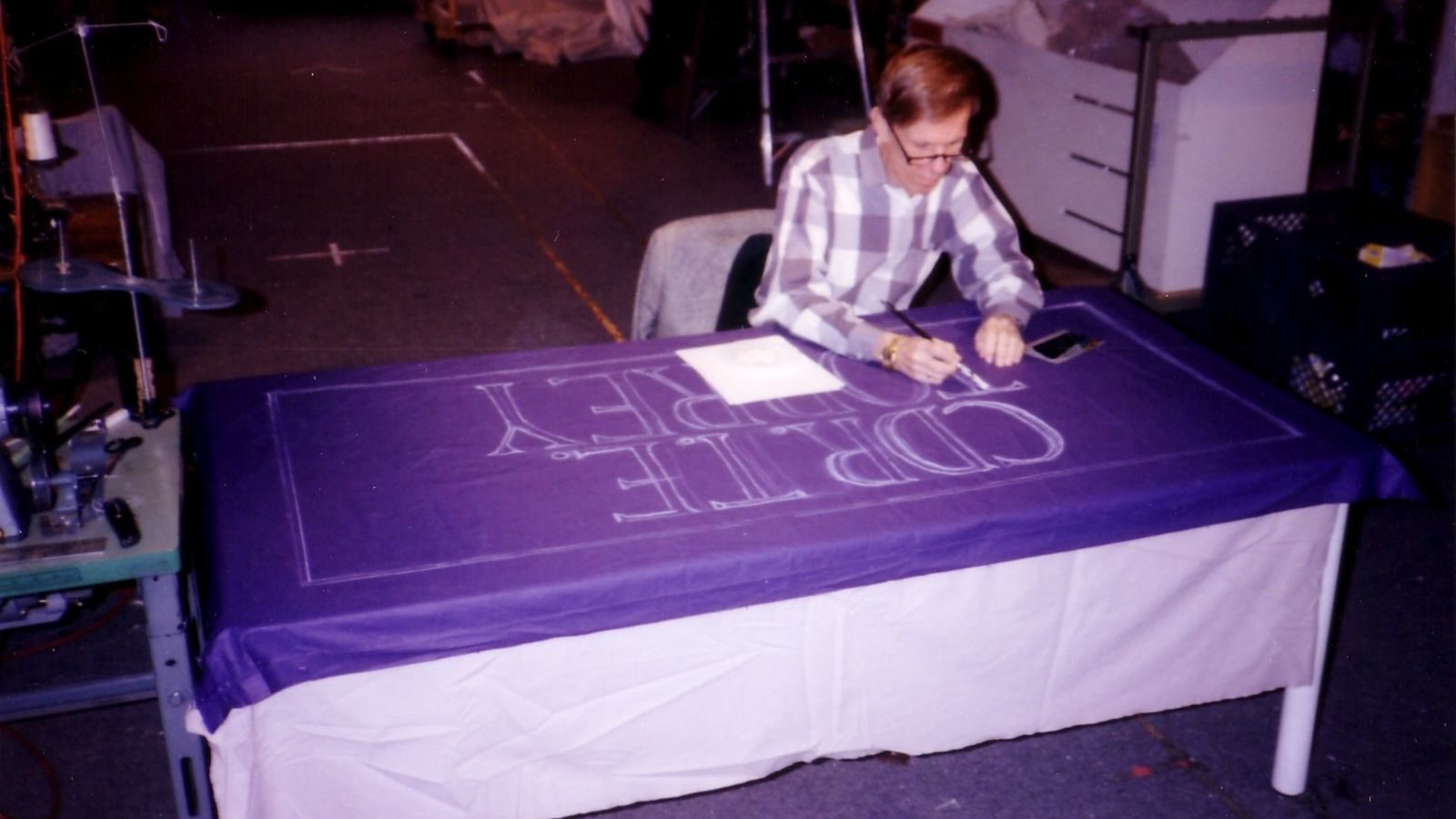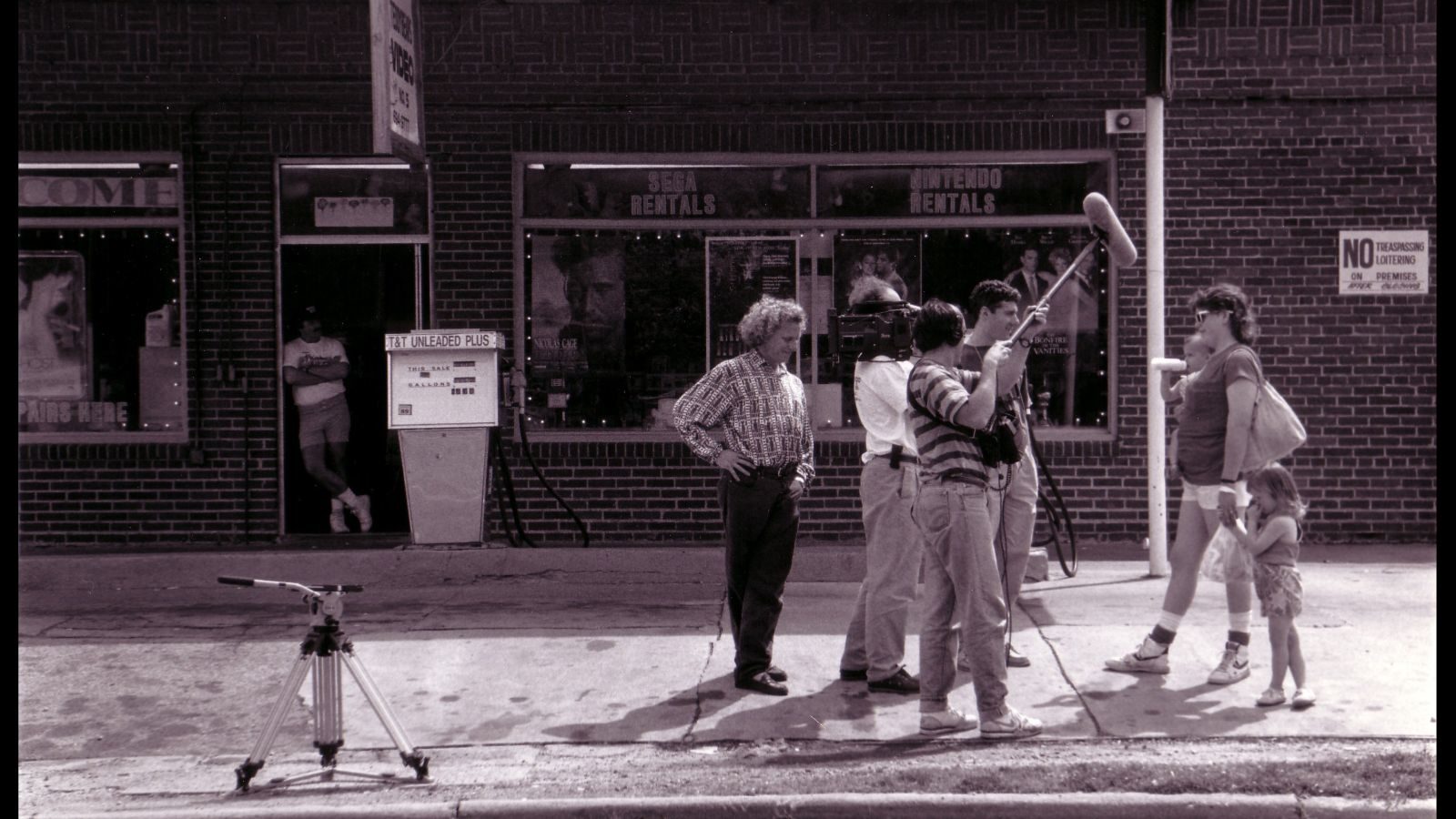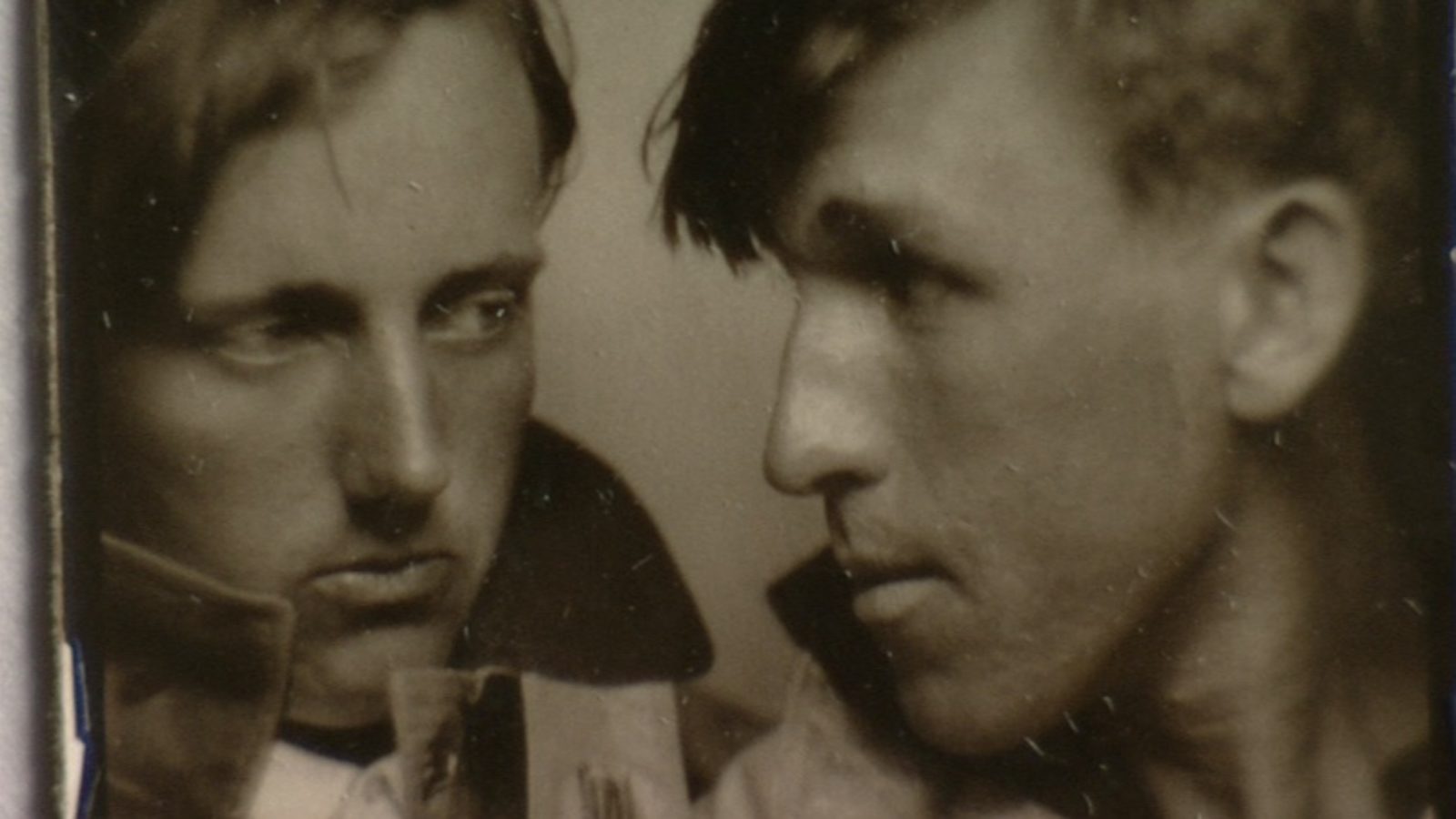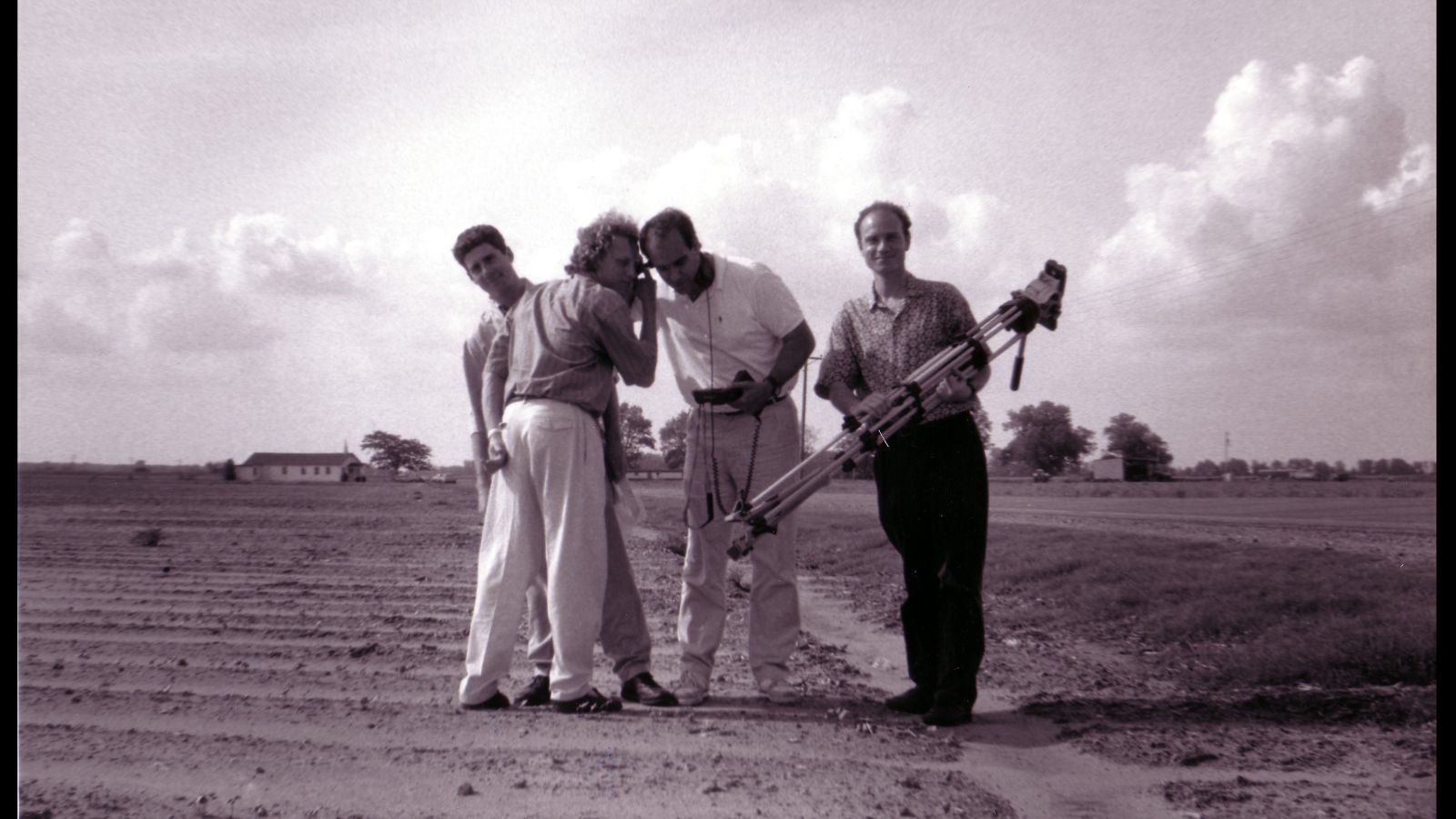With a career spanning almost four decades, Oscar-winning filmmakers Rob Epstein and Jeffrey Friedman have been creating seminal documentaries that have changed the course of queer cinema. Armed with an empathetic lens and an acute awareness of cultural impact, Epstein and Friedman shine a light on pivotal LGBTQ+ moments in history and on the intimate experiences of the community at large. We’re proud to present a nationwide virtual retrospective of their filmography, which has been described as “dynamic and humane” by David Lewis at San Francisco Chronicle. The series begins this Friday and runs through November 5. Get tickets here and save with a discount bundle that features new restorations courtesy of Milestone Films.
Explore their films below and join Epstein and Friedman for a free talk this Saturday, October 24 at 6pm ET! Register here.
The Times of Harvey Milk (1984)
Academy Awards 1985 – Best Documentary
Sundance Film Festival 1985 – Special Jury Prize: Documentary
Peabody Awards 1986 – Peabody Award
New York Film Critics Circle Awards 1984 – NYFCC Award: Best Documentary
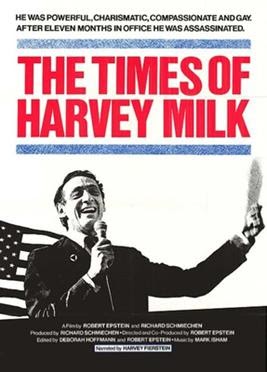
Shot on 16mm film and completed six years after the assassination of its subject, San Francisco camera shop owner and city supervisor Harvey Milk, Epstein’s clear-eyed and passionately assembled documentary incorporates original and archival footage to unfold a double portrait, capturing the personal legacy of a profoundly charismatic public figure, as well as the cultural, social, and political forces that framed his contributions at a pivotal moment in American history.
“This is an enormously absorbing film, for the light it sheds on a decade in the life of a great American city and on the lives of Milk and Moscone, who made it a better, and certainly a more interesting, place to live.” – RogerEbert.com, Roger Ebert
The AIDS Show (1986)
San Francisco International Lesbian & Gay Film Festival 1986 – Audience Award, Best Documentary: Winner
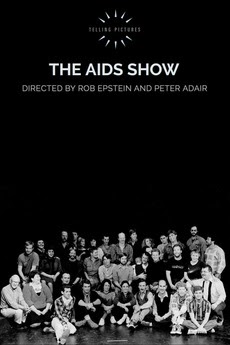
Produced at the outset of the HIV/AIDS crisis, Peter Adair and Rob Epstein’s unique synthesis of documentary and theater strikingly and movingly examines the toll that the epidemic had already taken on gay men in America by the mid-1980s. Based in part upon the San Francisco stage company Theatre Rhinoceros’s production, The AIDS Show: Artists Involved with Death and Survival, Adair and Epstein’s film combines excerpts from the theater piece and interviews with its performers to capture both the psychological and political effects of the epidemic at that stage, as well as queer artists’ efforts to confront it in their work.
“A complex production, often deeply moving, sometimes very funny, that gets away from the sanitizing ”objectivity” of a news report or panel discussion.” – The New York Times, John J. O’Connor
Common Threads: Stories from the Quilt (1989)
Academy Awards, USA 1990 – Best Documentary: Winner
Berlin International Film Festival 1990 – Interfilm Award: Winner
Peabody Awards 1990 – Peabody Award
GLAAD Media Awards 1990 – Outstanding TV Documentary: Winner
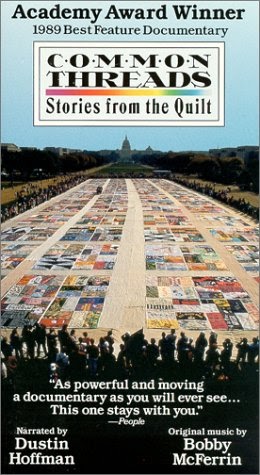
Among the great documents of AIDS activism, Common Threads takes the NAMES Project AIDS Memorial Quilt as a lens through which to examine the terrible scope of the epidemic. Epstein and Friedman movingly recount the stories of five AIDS victims, conveyed through interviews with the loved ones who survived them (including the film critic and historian Vito Russo, whose book The Celluloid Closet would subsequently be adapted by Epstein and Friedman), but they also take care to critique the Reagan administration’s woefully inadequate response to the crisis. Narrated by Dustin Hoffman and scored by Bobby McFerrin, Common Threads endures as a powerful record of loss, survival, and hope.
“The stories are terrifically moving without manipulation — the viewer is likely to cry more than anyone onscreen — but the feelings that hit hardest are anger and frustration.” – Entertainment Weekly, Jess Cagle
Where Are We? Our Trip Through America (1992)
Sundance Film Festival 1992 – Grand Jury Prize: Documentary – Nominee
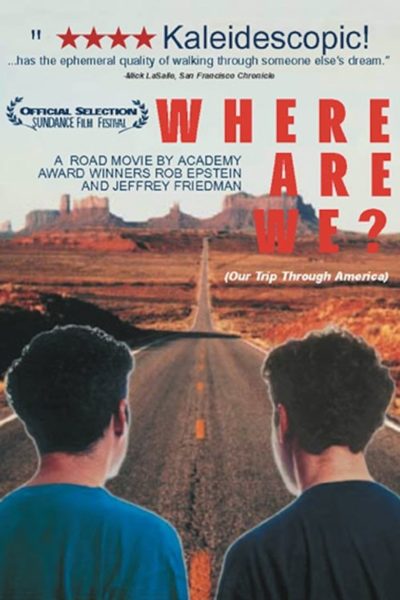
A road movie that approaches Tocqueville, Where Are We? finds Epstein and Friedman exploring a subject both familiar and alien to them: the Southern expanse of their country of residence. Having spent most of their lives on either coast, the filmmakers set out to see quarters of the nation they’d never encountered—but their interest, as always, resides in people. They meet a slew of interesting characters along the way, challenging, complicating, and transforming their own political and cultural assumptions about the region and its inhabitants. A fascinating, funny, and touching work of near-ethnography powered by empathy and curiosity, Where Are We? comprises an essential and thought-provoking portrait of our nation.
“Kaleidescopic . . . The filmmakers’ acute sense of compassion is visible in every frame. Where Are We? has the weird ephemeral quality of walking through someone else’s dream.” – San Francisco Chronicle
The Celluloid Closet (1995)
Berlin International Film Festival 1996 – Teddy, Best Documentary Film: Winner
Sundance Film Festival 1996 – Freedom of Expression Award: Winner
Peabody Awards 1997 – Peabody Award
Primetime Emmy Awards 1996 – President’s Award
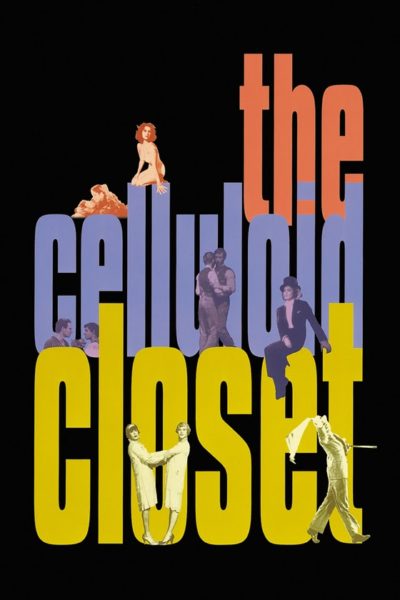
Adapted from Vito Russo’s seminal 1981 book The Celluloid Closet: Homosexuality in the Movies, Epstein and Friedman’s third collaboration is one of their most celebrated: a vivid, incisive documentary that examines the history of Hollywood’s approaches and attitudes toward the onscreen depiction of queer characters. By way of a lively, wry narration—written by Armistead Maupin, delivered in voiceover by Lily Tomlin, and set against interviews with the likes of Richard Dyer, Gore Vidal, and Shirley MacLaine, as well as a wealth of excerpts from familiar films—The Celluloid Closet makes the case that since the dawn of cinema, LGBTQ+ representation in American film has engaged in active dialogue with social history.
“It’s an invaluable addition not just to film studies, but to the larger cultural conversation about art and queer identity — a history lesson and a correction, 24 frames per second.” – Rolling Stone, David Fear
Paragraph 175 (2000)
Sundance Film Festival 2000 – Directing Award, Documentary: Winner
Berlin International Film Festival 2000 – FIPRESCI Prize – Forum of New Cinema: Winner; Teddy, Best Documentary Film: Winner
Milan International Lesbian and Gay Film Festival 2000 – Best Documentary: Winner
Philadelphia International Gay & Lesbian Film Festival 2000 – Jury Prize, Best Documentary: Winner
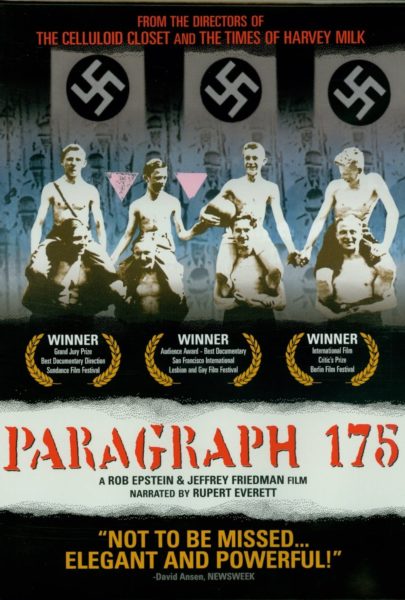
A historical investigation into the persecution of gay men by the Third Reich, Paragraph 175 is one of Epstein and Friedman’s most powerful works, narrating the story of the 100,000 men arrested by the Nazis under an anti-sodomy provision of the German penal code; by the end of the Holocaust, just 4,000 of them remained. This film seeks to address the lack of documentation of and testimony from these persecuted Germans through interviews with five of the remaining survivors. Their recountings are revelatory, harrowing, captivating, and transformative, bearing witness to the end of the Weimar era and the barbaric period that followed.
“Heart-stopping . . . stirring . . . imbued with humanity and unexpected humor.” – New York Newsday, Jan Stuart
Additional Readings and Viewings
Harvey’s Enduring Legacy – Criterion (2011), by Stuart Milk
IDA Conversation Series: Jeffrey Friedman and Rob Epstein – International Documentary Association (2019)
Epstein and Friedman, whose docs influenced LGBT history, get SFFilm honor – San Francisco Chronicle (2018), by David Lewis
Rob Epstein and Jeffrey Friedman Revisit the Making of Their 1989 Landmark AIDS Doc “Common Threads” – Variety (2019), by Marc Malkin
Telling Pictures: The Documentaries of Rob Epstein and Jeffrey Friedman runs October 23-November 5. Get tickets here.


